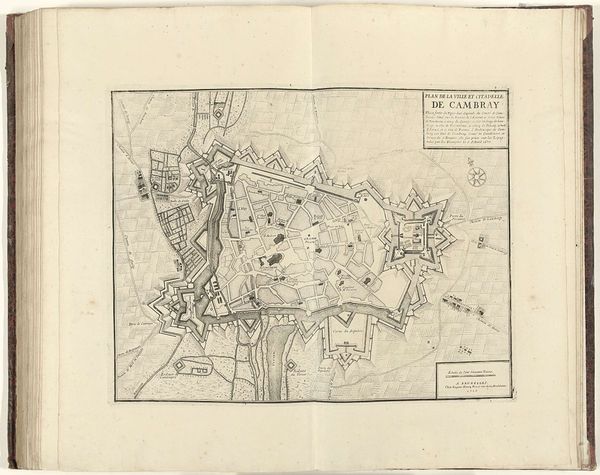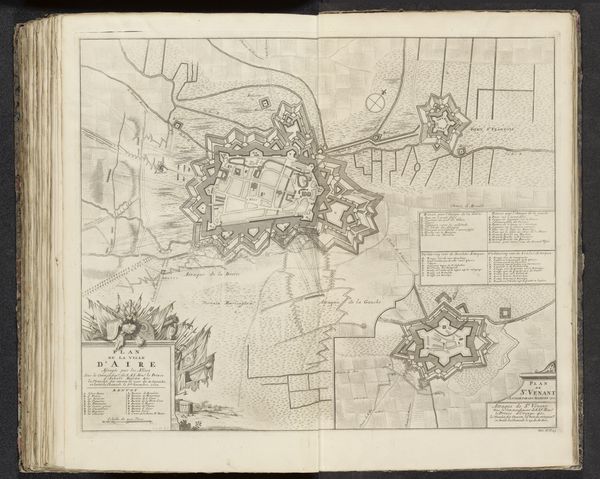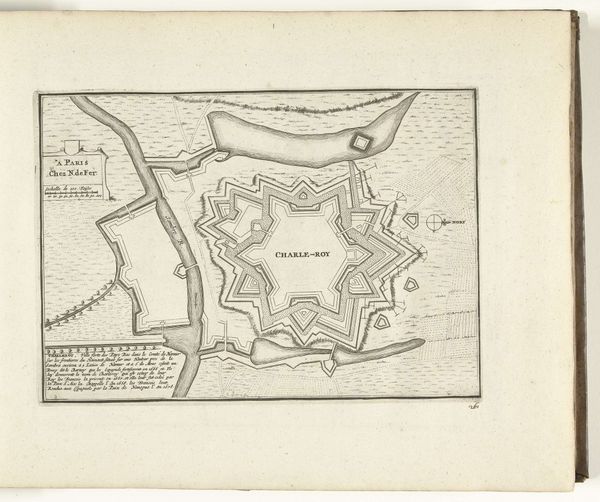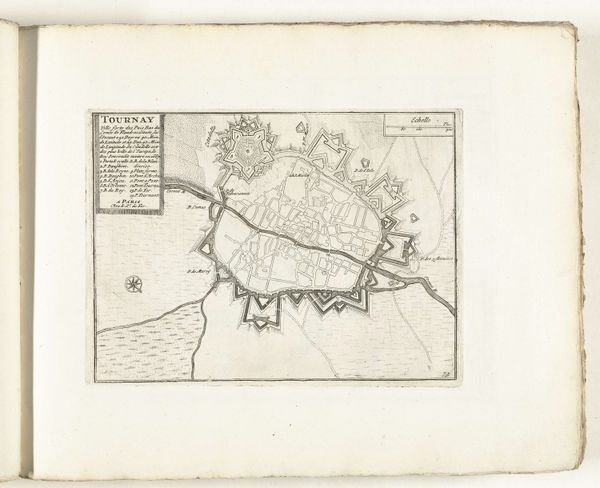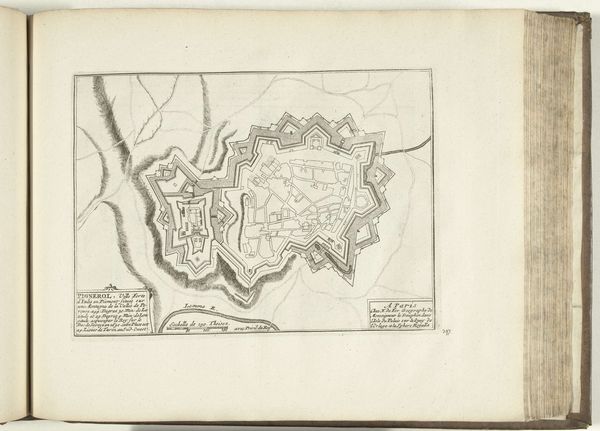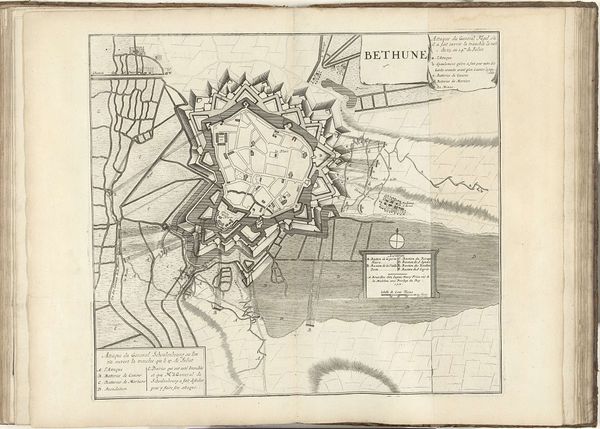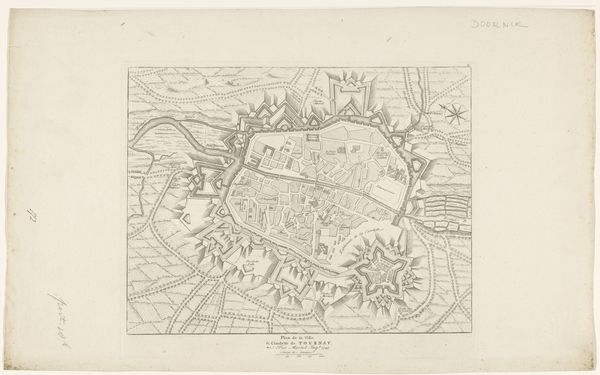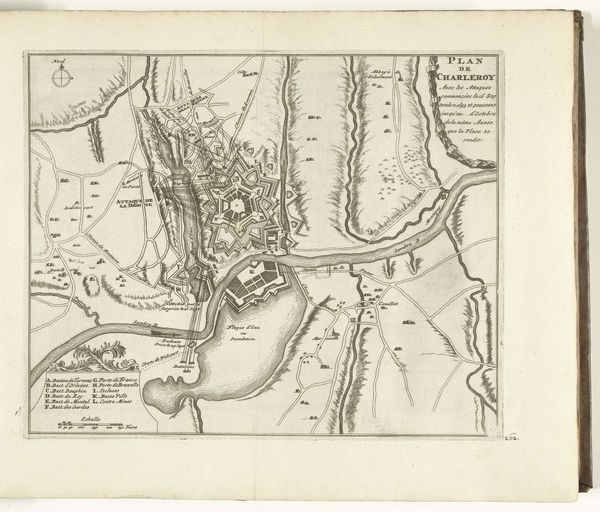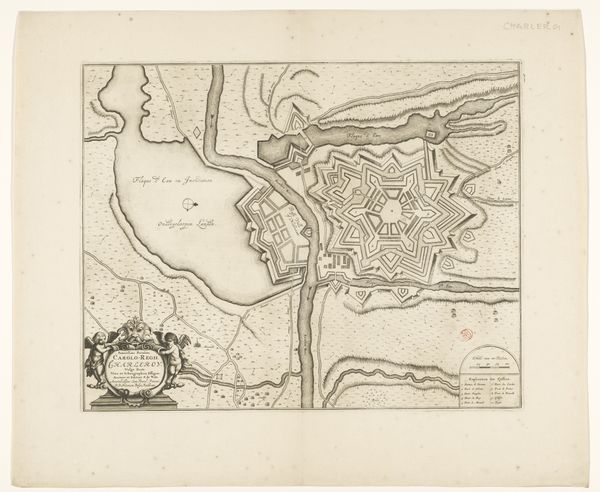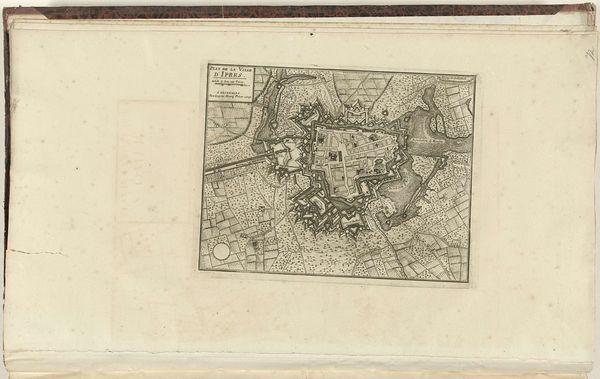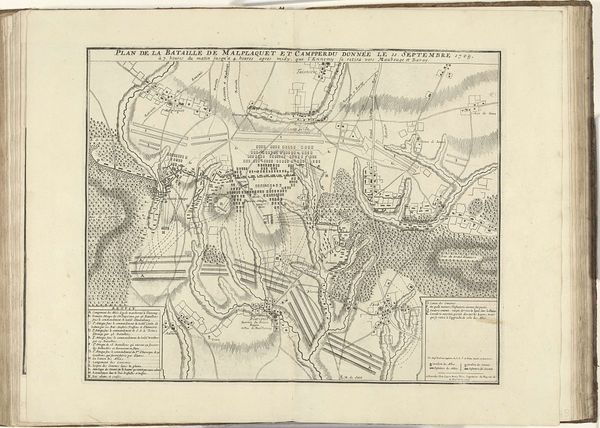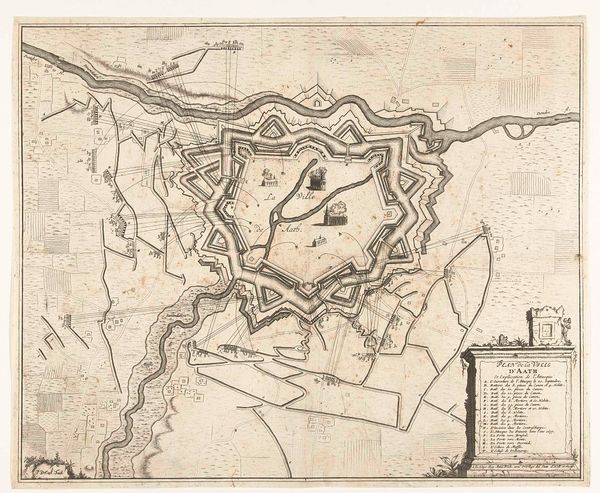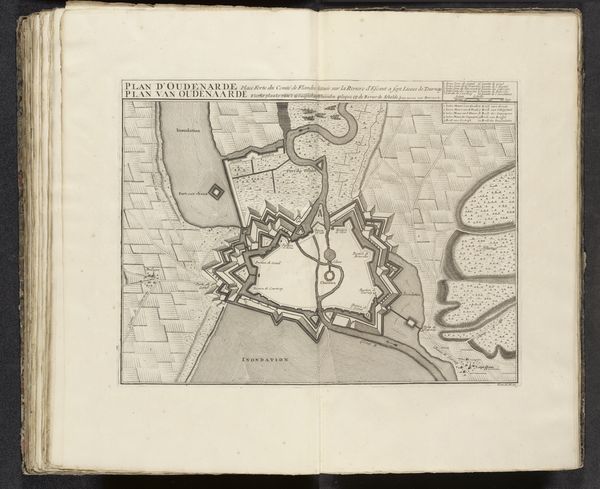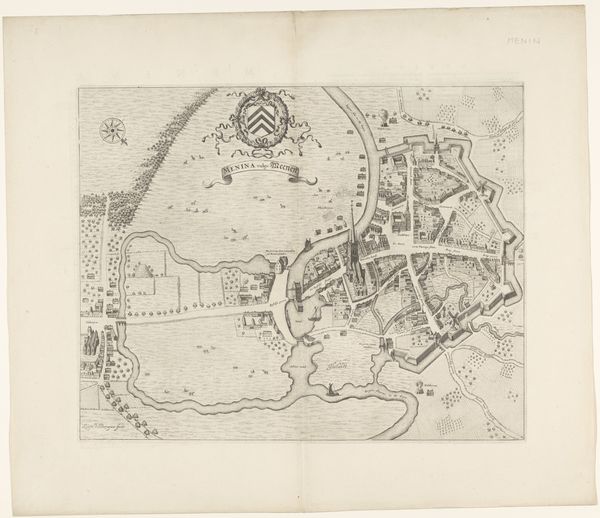
drawing, print, paper, ink, engraving
#
drawing
#
baroque
#
dutch-golden-age
# print
#
paper
#
ink
#
geometric
#
cityscape
#
history-painting
#
engraving
Dimensions: height 360 mm, width 480 mm
Copyright: Rijks Museum: Open Domain
This is Jacobus Harrewijn's "Plattegrond van Aire," made in 1710. Observe the star-shaped fortifications, a dominant feature, and potent symbol of military power in early modern Europe. This configuration is no accident; it echoes the designs of Renaissance Italy, where the star fort emerged as a response to the rise of gunpowder artillery. These star-shaped bastions are not merely functional; they visually assert dominance and create a psychological impact on both defenders and potential invaders. Consider how the star fort evokes a sense of impregnability, akin to mandalas or other protective symbols found across cultures. Each point of the star is a strategic advantage, a watchful eye, projecting power outwards. Like the cyclical nature of history itself, the star fort evolves, adapts, and reappears across different epochs. It reflects humanity's relentless pursuit of security and control—a visual echo of our deepest anxieties and aspirations.
Comments
No comments
Be the first to comment and join the conversation on the ultimate creative platform.
